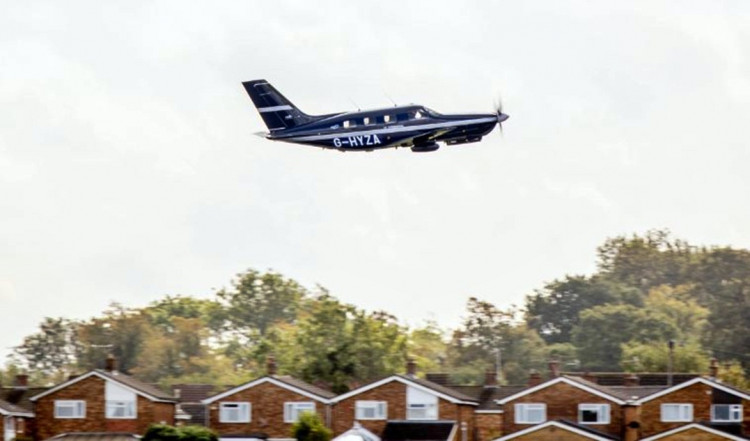ZeroAvia, the British-American startup that flew the world's first hydrogen fuel cell-powered plane in September, has received a $21.4 million cash investment in its latest funding round from a group of investors that includes billionaire Bill Gates.
Among those sinking badly-needed cash into ZeroAvia, which is developing non-polluting, hydrogen-electric technology to power aircraft, were oil and clean energy firms such as Royal Dutch Shell, Breakthrough Energy Ventures, a company established by Gates in 2015, and the Ecosystem Integrity Fund, a sustainability focused venture capital fund.
Previous investors were the Amazon Climate Pledge Fund, Horizons Ventures and Summa Equity. ZeroAvia has also secured $16.3 million from the British government. It's also partnering with British Airways to help the airline accelerate the switch to hydrogen to power its global passenger plane fleet.
All told, ZeroAvia has announced new funding $37.7 million in less than a week. The company was founded only in 2017 and has headquarters in California and the UK.
CEO Val Miftakhov said the "milestone achievements are closing the gap for the airline industry to begin its transition away from fossil fuels."
"Both aviation and the financial markets are waking up to the idea that hydrogen is the only meaningful path towards large-scale, zero-emission commercial flight."
On September 24, a ZeroAvia Piper Malibu Mirage v turboprop modified with a 300 kilowatt (kW) battery electric power system completed taxiing, takeoff, a full pattern circuit, and landing.
"Developing aircraft that create less pollution will help the UK make significant headway in achieving net-zero carbon emissions by 2050," said Nadhim Zahawi, UK business and industry minister, in a statement after the world first test flight.
"Backed by government funding, this flight is another exciting milestone in ZeroAvia's project. It shows that technologies to clean up air travel are now at our fingertips - with enormous potential to build back better and drive clean economic growth in the UK."
ZeroAvia, however, plans a flight of 250 miles, or the distance from London to Paris, in the next three months. Its grand aim is to commercialize its hydrogen-fuel technology as early as 2023.
It sees flights of up to 500 miles in hydrogen aircraft with up to 20 seats. These planes are typically used in regional aviation and cargo transport.
Within the next 10 years, ZeroAvia foresees flights of more than 1,000 miles in passenger aircraft with over 100 seats. Miftakhov revealed that more than 10 airlines are gearing up to implement the company's hydrogen-fuel technology in 2023.
Amazon's vice president for worldwide sustainability Kara Hurst said said ZeroAvia's zero-emission aviation powertrain has real potential to help decarbonize the aviation sector. Amazon hopes its investment "will further accelerate the pace of innovation to enable zero-emission air transport at scale."






